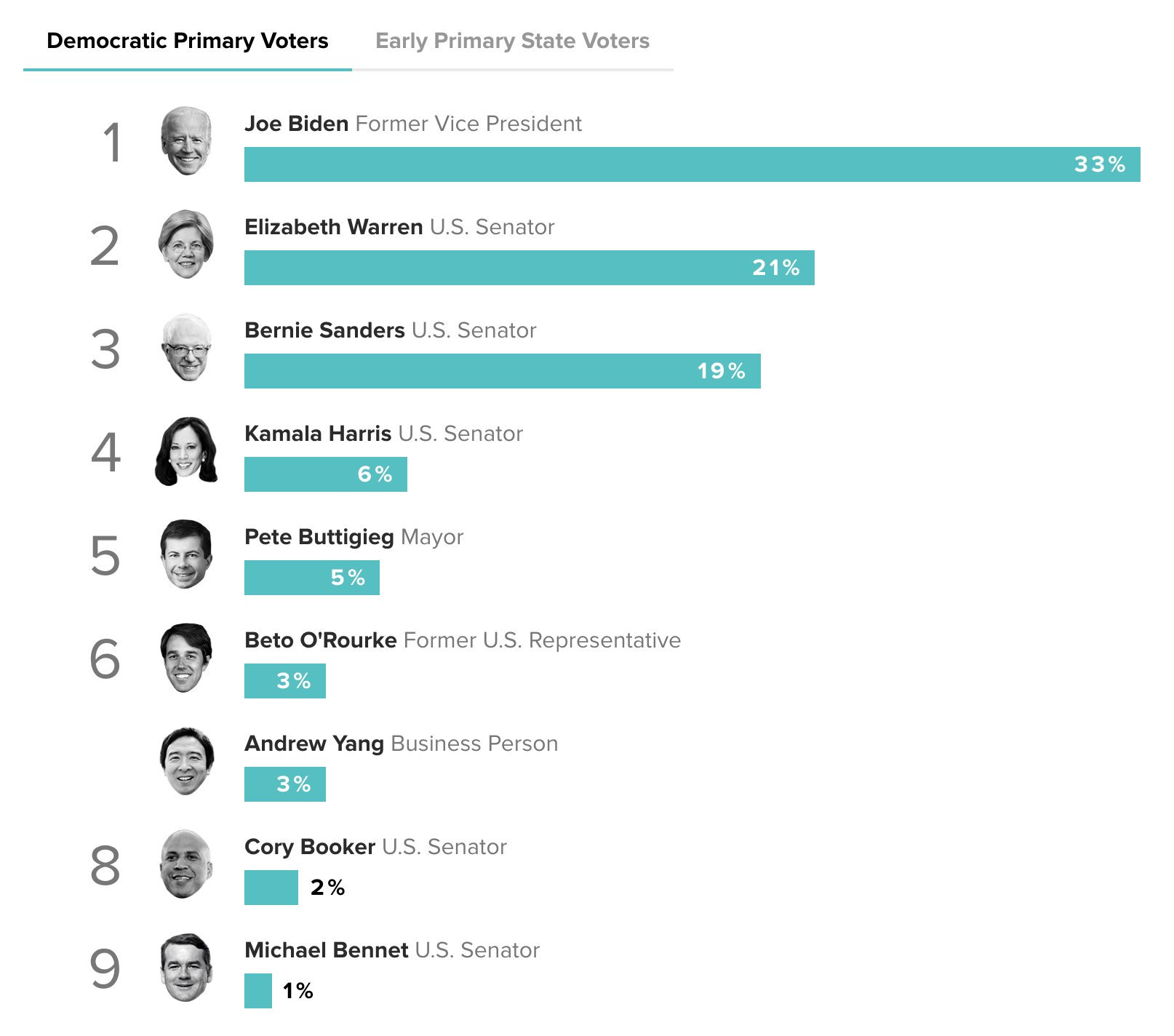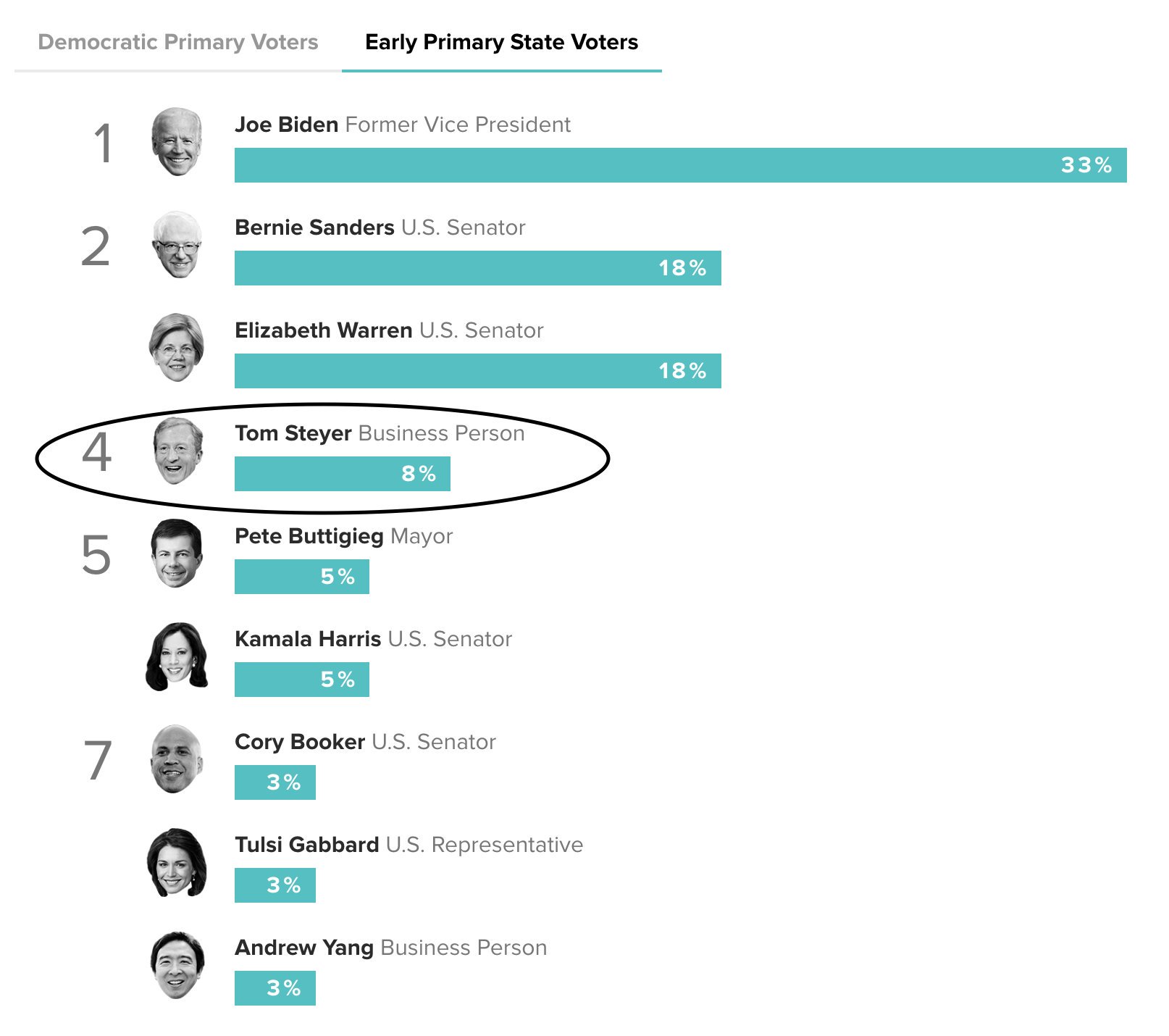Epistemic status: speculative
Andrew Yang understands AI X-risk. Tom Steyer has spent $7 million on adds in early primary states, and it has had a big effect:


If a candidate gets more than 15% of the vote in Iowa (in any given caucus), they get delegates. Doing that consistently in many caucuses would be an important milestone for outsider-candidates. And I'm probably biased because I think many of his policies are correct, but I think that if Andrew Yang just becomes mainstream, and accepted by some "sensible people" after some early primaries, there's a decent chance he would win the primary. (And I think he has at least a 50% chance of beating Trump). It also seems surprisingly easy to have an outsize influence in the money-in-politics landscape. Peter Thiel's early investment in Trump looks brilliant today (at accomplishing the terrible goal of installing a protectionist).
From an AI policy standpoint, having the leader of the free world on board would be big. This opportunity is potentially one that makes AI policy money constrained rather than talent constrained for the moment.

Totally agree that many data points should go into evaluating political candidates. I haven't taken a close look at your scoring system yet, but I'm glad you're doing that work and think more in that direction would be helpful.
For this thread, I've been holding the frame of "Yang might be a uniquely compelling candidate to longtermist donors (given that most of his policies seem basically okay and he's open to x-risk arguments)."